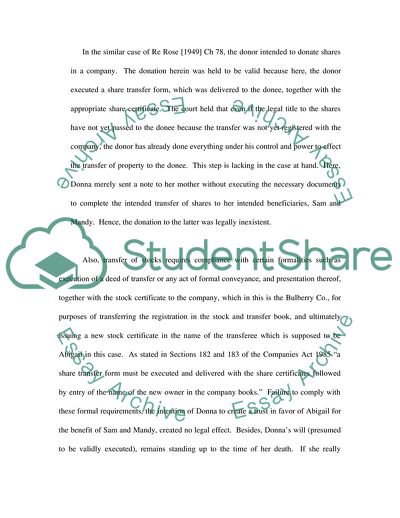Cite this document
(Donnas Will Case Study Example | Topics and Well Written Essays - 3500 words - 1, n.d.)
Donnas Will Case Study Example | Topics and Well Written Essays - 3500 words - 1. https://studentshare.org/law/1705700-uk-law-equity-and-trusts-problem-question
Donnas Will Case Study Example | Topics and Well Written Essays - 3500 words - 1. https://studentshare.org/law/1705700-uk-law-equity-and-trusts-problem-question
(Donnas Will Case Study Example | Topics and Well Written Essays - 3500 Words - 1)
Donnas Will Case Study Example | Topics and Well Written Essays - 3500 Words - 1. https://studentshare.org/law/1705700-uk-law-equity-and-trusts-problem-question.
Donnas Will Case Study Example | Topics and Well Written Essays - 3500 Words - 1. https://studentshare.org/law/1705700-uk-law-equity-and-trusts-problem-question.
“Donnas Will Case Study Example | Topics and Well Written Essays - 3500 Words - 1”. https://studentshare.org/law/1705700-uk-law-equity-and-trusts-problem-question.


